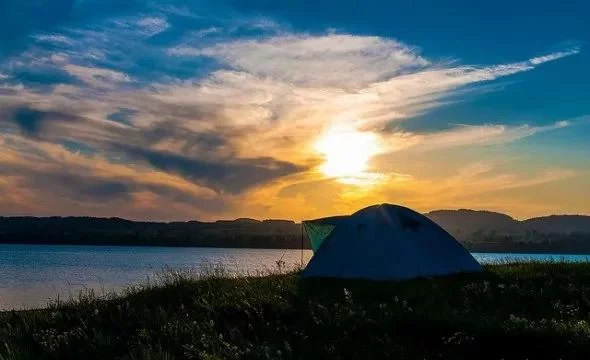Discover how to plan a budget-friendly fishing and camping trip with practical tips on saving money, selecting affordable destinations, and making the most of your outdoor adventure without breaking the bank.

Tips for Fishing and Camping on a Budget
- 1. Choosing Affordable Fishing and Camping Destinations
- 2. Packing Smartly for Budget-Friendly Adventures
- 3. Finding Low-Cost Fishing Gear
- 4. Planning Meals on a Budget
- 5. Maximizing Fun Without Spending a Lot
1. Choosing Affordable Fishing and Camping Destinations
When it comes to fishing and camping on a budget, the destination you choose plays a big role in keeping costs down. National parks, state parks, and local campgrounds often offer affordable camping options with beautiful natural settings. The best part is that many of these parks allow free or low-cost fishing in nearby lakes or rivers.
I once went camping at Chequamegon National Forest in Wisconsin, which is not only affordable but also a hidden gem for fishing enthusiasts. The forest offers several campsites that are reasonably priced, and the nearby rivers and lakes are perfect for fishing. There’s no need to book a fancy resort or expensive boat tours when you can access great fishing spots right from the shore.
For even more savings, consider camping during the off-season. Many campgrounds reduce their rates in the spring and fall, and you'll enjoy the same beauty without the crowds and higher prices. Try checking out Lake Michigan’s State Parks for excellent off-season fishing and scenic, budget-friendly campgrounds.
2. Packing Smartly for Budget-Friendly Adventures
One of the biggest expenses when camping and fishing is the gear. However, packing smartly can help you avoid overspending. Start by checking your home for any camping gear you already own, like tents, sleeping bags, or cooking equipment. Borrowing items like fishing rods or kayaks from friends or family is also a great way to save money.
For my camping trip in Smoky Mountain National Park, I was able to save money by reusing camping equipment I had from previous trips. I brought along an affordable, well-worn tent and a simple camp stove I bought at a discount store. This kept my expenses low, and I didn’t sacrifice comfort for cost. When packing for a budget camping trip, focus on the essentials—warm clothing, a durable tent, a cooler, and a basic fishing kit.
3. Finding Low-Cost Fishing Gear
Fishing gear doesn’t have to cost a fortune. Many affordable options are available that still perform well. To find low-cost fishing gear, consider shopping at local outdoor stores, discount retailers, or online marketplaces. Look for second-hand fishing rods and reels that are in good condition, as well as budget-friendly tackle boxes and baits.
On my budget fishing trip to Florida’s Gulf Coast, I purchased a simple rod-and-reel combo at a local discount store, and it worked perfectly for catching fish in the shallow waters. In addition to saving money, I discovered that sometimes the simplest gear can be the most effective. If you're a beginner, you don’t need to splurge on high-end equipment—basic rods and reels are more than enough for a fun and successful fishing trip.
4. Planning Meals on a Budget
Food can quickly become a major expense on a fishing and camping trip, but with some careful planning, you can enjoy delicious meals without breaking the bank. Start by preparing easy, budget-friendly meals like pasta, rice dishes, and canned goods that are easy to cook on a camp stove. Make sure to pack snacks like trail mix and granola bars to fuel up during your fishing excursions.
During my trip to Big Bend National Park, I planned all my meals ahead of time, buying simple, non-perishable foods that were both filling and easy to prepare. One of my favorite budget-friendly meals was a simple campfire chili made from canned beans, tomatoes, and ground beef. Not only was it affordable, but it was also hearty enough to keep me energized during a full day of fishing. Bring along a cooler to store fresh produce and meats, but remember to only pack what you need to avoid food waste.
5. Maximizing Fun Without Spending a Lot
Camping and fishing are already low-cost activities, but there are plenty of ways to maximize your outdoor fun without spending extra money. Hiking, swimming, or wildlife watching are all free activities that can be enjoyed at most campgrounds. Additionally, some national parks offer free ranger-led programs or hiking tours that can enhance your experience without additional fees.
On my trip to Yellowstone National Park, I made the most of the beautiful surroundings by hiking scenic trails and enjoying the natural hot springs. I also joined a free ranger-led tour, which allowed me to learn about the park’s geology and wildlife. It was a wonderful way to enjoy the park without spending extra money, and I highly recommend exploring these free programs whenever possible.
Finally, consider socializing with other campers and fishermen. Many campgrounds have communal fire pits or picnic areas where you can share stories and tips. It’s a great way to build connections, exchange advice on local fishing spots, and learn from others without spending a dime.
Yogi Bear's Jellystone Park Camp-Resort: Tyler, TX
5583 FM Rd 16, Tyler, TX 75706, USA
Visit Location PageRush Valley Campsite
Utah, USA
Visit Location Page